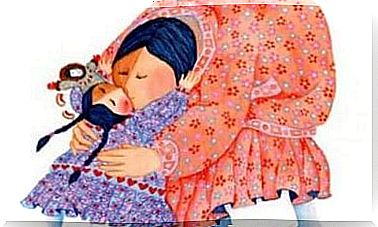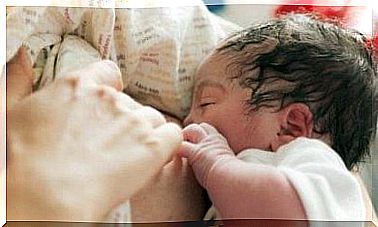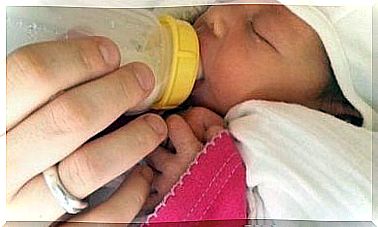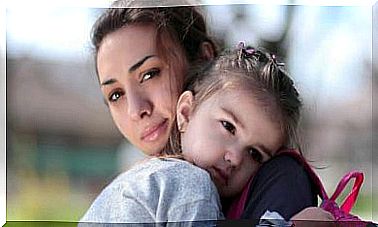Consequences Of Poor Children’s Nutrition

Nutrition is one of the most important aspects that determine development in children. We parents have a responsibility to provide them with the necessary nutrients, to ensure that they adopt good habits and to prevent poor children’s nutrition.
The consequences of poor children’s nutrition result in the appearance of serious diseases that can come to an extremely damaging conclusion. A balanced diet reduces these risks and promotes a healthy life.
Prevention to avoid the consequences of poor children’s nutrition
The rule is: prevent before cure. Adequate nutrition in childhood, including all food groups, will avoid negative consequences in adulthood. Likewise, the bad habits that parents allow for formation throughout childhood will accompany the child throughout his life.
If the child refuses to eat fruit, vegetables or fish, alternatives must be found to ensure that they are present in his diet. A healthy, balanced and varied diet during the first years of life will result in a good metabolism in adulthood.
A slowdown in development, a decrease in concentration and an increase in fatigue are some of the consequences that result from poor nutrition in children. For example, reading or studying will become much more tiring.
Malnourished children suffer from skin and hair pigmentation changes. Vision problems and inadequate physical and mental development are common, as are a greater propensity to disease.
Weight and height outside the normal range
By excess or by defect, malnutrition causes serious damage to the organism. The weight and stature outside the normal values are one of the consequences caused by poor nutrition of children. Among other effects, arterial hypertension, osteoporosis, kidney and heart disease are also present.
We must not forget, then, that the increase in cholesterol and some types of cancer are also part of the risks caused by a poor diet.
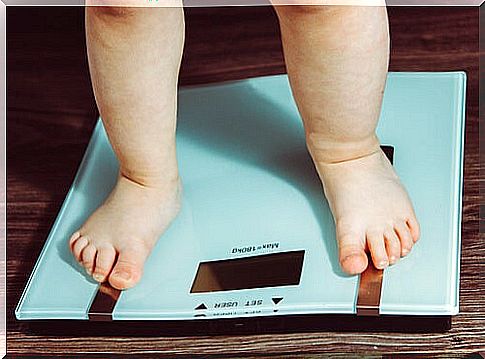
Iron deficiency
Iron deficiency is a nutritional deficiency that can lead to anemia. Its effects on children’s intellectual development are irreversible. It reduces the ability to analyze and understand and, consequently, also the intelligence is limited.
Hypotonia or muscle weakness
Muscle weakness, known as hypotonia, is a consequence of poor children’s nutrition. Sadness, paleness, stunting and weak crying are some of the symptoms; low physical and academic performance is another of the risks that are run. In babies it manifests itself through a delay in taking the first steps.
Obesity since childhood
In children, being overweight is manifested by rapid weight gain and difficulty in moving around. It can cause hormonal disorders, diabetes, increased cholesterol, bone changes, respiratory and hepatic complications.
Lack of control over the type of food they eat is one of the causes of poor children’s nutrition. When you overconsume packaged foods, sausages, sodas, high-fat fast food, sweets and fries, the consequences come quickly.
Excess carbohydrates, fats and proteins cause serious health problems for children. For this reason, they should be administered in very moderate quantities.
Proteins: few or in excess
The consumption of proteins, essential for the formation of muscle fiber, must be present in the adequate quantity. If these are in excess, they overload the kidneys and liver, which are responsible for eliminating harmful substances once the metabolism is in action.
Excess calcium, which accumulates due to the inability to eliminate substances from the body, causes kidney stones. It can also reduce the ability to assimilate minerals.
The lack of proteins, on the other hand, causes a difficulty in metabolizing them. Cachexia causes muscle exhaustion and atrophy, fatigue, weakness and apathy.
Carbohydrates: deficiency or abuse
In children, the excess of carbohydrates, in addition to obesity, causes diabetes and cardiovascular disease. Caries, mood swings, lack of concentration and hyperactivity appear.
At the other extreme, the lack of carbon hydrates causes fatigue and loss of appetite. Being the “gasoline” of our body, their low consumption translates into a decrease in energy.

Fat: more or less
A diet with excess fat causes you to be overweight. Their deficiency, on the other hand, causes avitaminosis, or a deficiency of vitamins A, D, E and K, which manifests itself through irritability, lack of concentration and apathy.
Vitamin deficiency also causes thyroid problems, neurological disorders, anemia, scurvy, and rickets. Parents need to be alert for manifestations of fatigue, cramps, headaches, numbness, character changes and decreased mental abilities.
The consequences of poor children’s nutrition can be permanent. A healthy and varied diet during childhood leads to a healthy and long life. At any cost, introducing foods from all groups into children’s diets is essential to allow them to develop properly.
